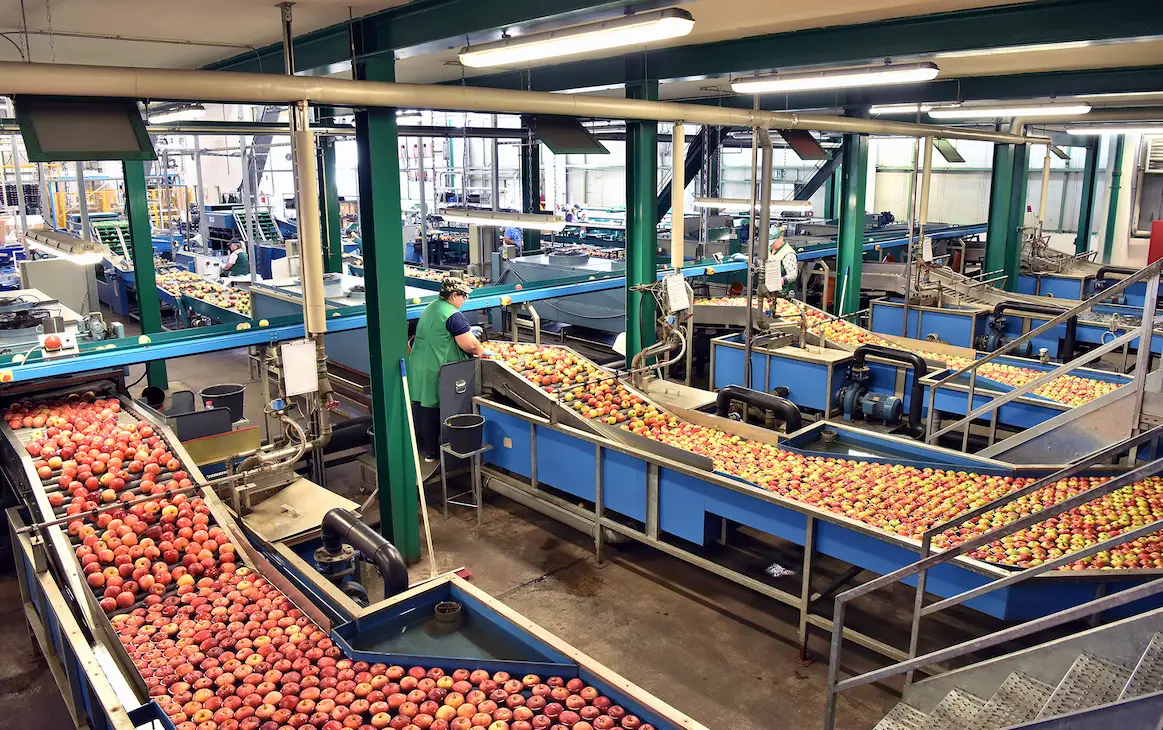Benefits of Specification Data Management in Food Quality Assurance
At its core specification management involves the detailed documentation and standardization of data and specifications, helping to streamline operations. It helps companies track all stages of their supply chain, documenting everything from SKU changes to compliance issues.
In the context of the Food industry, Specification Management plays an essential role in maintaining the safety and consistency of products. From ingredient sourcing to packaging, specification management not only meets but exceeds the rigorous standards set by both the industry and regulatory bodies.
By clearly outlining product specifications, food manufacturers can ensure uniformity across all products, thereby increasing consumer health, safety, and product reliability down the line.
When it comes to quality assurance all manufacturing processes must be working in alignment. But for this to work processes cannot be siloed but instead seamlessly integrated into one specification management system.
Key Components of Food Safety and Quality Management
Navigating the complex landscape of food safety and quality management requires a comprehensive understanding of its key components. Understanding these core elements ensures that food products exceed regulatory and consumer expectations.
Food Safety Standards and Regulations
Companies involved in food production and distribution must adhere to food safety standards and regulations. This involves tracking products at all stages of production to ensure complete safety and compliance.
Specification management plays a critical role in ensuring companies are compliant with both international and national regulatory standards aimed at maintaining consumer health. Among these regulations are the Food Safety Modernization Act (FSMA) and ISO 22000.
The Food Safety Modernization Act (FSMA) focuses on preventing food safety issues in the United States. Overseen by the Food and Drug Administration (FDA), FSMA emphasizes the shift from a focus on responding to contamination to preventing it before it occurs. The act manages food producers, processors, and distributors by requiring all parties to follow tight measures and protocols to identify and mitigate any potential food hazards.
ISO 22000 is a globally recognized standard that outlines requirements for food safety management systems. The standard integrates pieces of the Hazard Analysis and Critical Control Point (HACCP) system with prerequisite programs (PRPs) and other critical food safety measures. The detailed requirements for every stage of the food supply chain hold all stakeholders accountable.
These regulations, along with others such as the European Union’s General Food Law (Regulation EC 178/2002), set rigorous guidelines covering every stage of the food supply chain, from production and processing to distribution and consumption.
To manage the changing regulatory landscape having adequate specification management is key. With the right tools companies can seamlessly document and monitor compliance activities to ensure that food products meet the highest safety standards.
Quality Control and Assurance
Once the implications of food standards and regulations are understood companies need to implement quality control and assurance processes. These processes are the backbone of ensuring that food products not only meet but exceed established standards of safety and quality.
Specification management lays the foundation for this by defining clear, measurable standards and giving companies access to the data and specifications they need. From ingredients to packaging organizations must have access to all the data to control quality.
This precision enables quality control teams to implement targeted methods and technologies, such as random sampling, rigorous testing, and continuous monitoring, to identify and rectify deviations from these specifications.
Taking a proactive approach to address quality issues ensures that companies don’t fall short of regulatory requirements and worse legal consequences.
Legal Aspects of Food Specification Data Management
Meeting regulatory requirements for food products has implications beyond just not getting fined. It is about consumer health and safety and can have serious consequences when standards fail to be met.
Non-compliance can lead to severe consequences, including product recalls, legal suits, and damage to brand reputation – not to mention potential harm to consumers. This being said, with the use of purpose-built Specification Data Management systems companies can ensure this isn’t the case.
With access to data and specifications from raw materials to final product testing, businesses can significantly mitigate the risk of legal challenges. This proactive approach ensures a thorough alignment with food laws and regulations, showing commitment to food safety and quality.
Not only does specification management safeguard against financial and legal repercussions of non-compliance but it also showcases an organization’s dedication to consumer well-being, further building consumer trust and brand loyalty.
5 Essentials for Food Specification Data Management
The following are essential things to consider when it comes to effective food specification management.
- Purchasing Decisions
When it comes to purchasing decisions in the food industry there is a lot to consider. From the selection of suppliers to the quality of raw materials, effective food specification management can critically shape these purchasing decisions.
With access to high-quality specifications, businesses can establish clear expectations for suppliers, ensuring that all ingredients and materials meet company standards. Additionally, the information sets the foundation for quality assurance of incoming materials.
With adequate Specification Data Management teams can ensure that purchasing decisions are made intelligently and in alignment with organizational goals.
- Leveraging the Information from Production Reports
Using production reports organizations can get deeper insights into the efficiency of existing systems and processes. Although these reports can’t be formulated without accurate data and specifications.
With the right Specification Data Management systems companies can access all necessary data to build out reports on every facet of production, highlighting areas where improvements can be made.
By analyzing this information, businesses can always be on the path of continuous improvement, refining processes, and enhancing product quality.
- Setting up Control and Measuring Systems
Establishing control and measuring systems is a must when it comes to food quality and assurance. These systems meticulously monitor production processes, verifying that every product meets a set of specifications.
Using the right specification systems enables organizations to set u control and measuring systems that guarantee the consistency and quality of food products. Using these systems regular reviews and specification updates can take place in response to production capabilities, consumer expectations, and regulatory requirements.
- Inventory Management
Specification management can help organizations with inventory control and the optimizations of stock levels. Accurate and detailed specifications ensure that only materials and products that meet expected standards are kept, thereby minimizing waste and ensuring efficient use of storage space.
Additionally, access to specification management can provide appropriate storage conditions for each food product, preventing spoilage and loss. With inventory management in control production processes are better streamlined for operational efficiency and sustainability.
- Sanitation in Storage
Sanitation of storage spaces is critical when it comes to food safety and quality. Effective specification management can help set clear standards of cleanliness no matter where products are stored.
This helps prevent any contamination and preserves the integrity of stored materials and products. With teams working in the same specification management system, an organization can ensure that the highest standards are in place to protect their products.
Want to learn more? Check out our blog on the Food Safety Modernization Act (FSMA) or request a demo.
Explore More Blogs
Get Started
With Specright’s Solution Suite, you can digitize, centralize, and link your specification data to drive efficiencies, intelligence, traceability, and collaboration within your organization and across your supply chain network.




